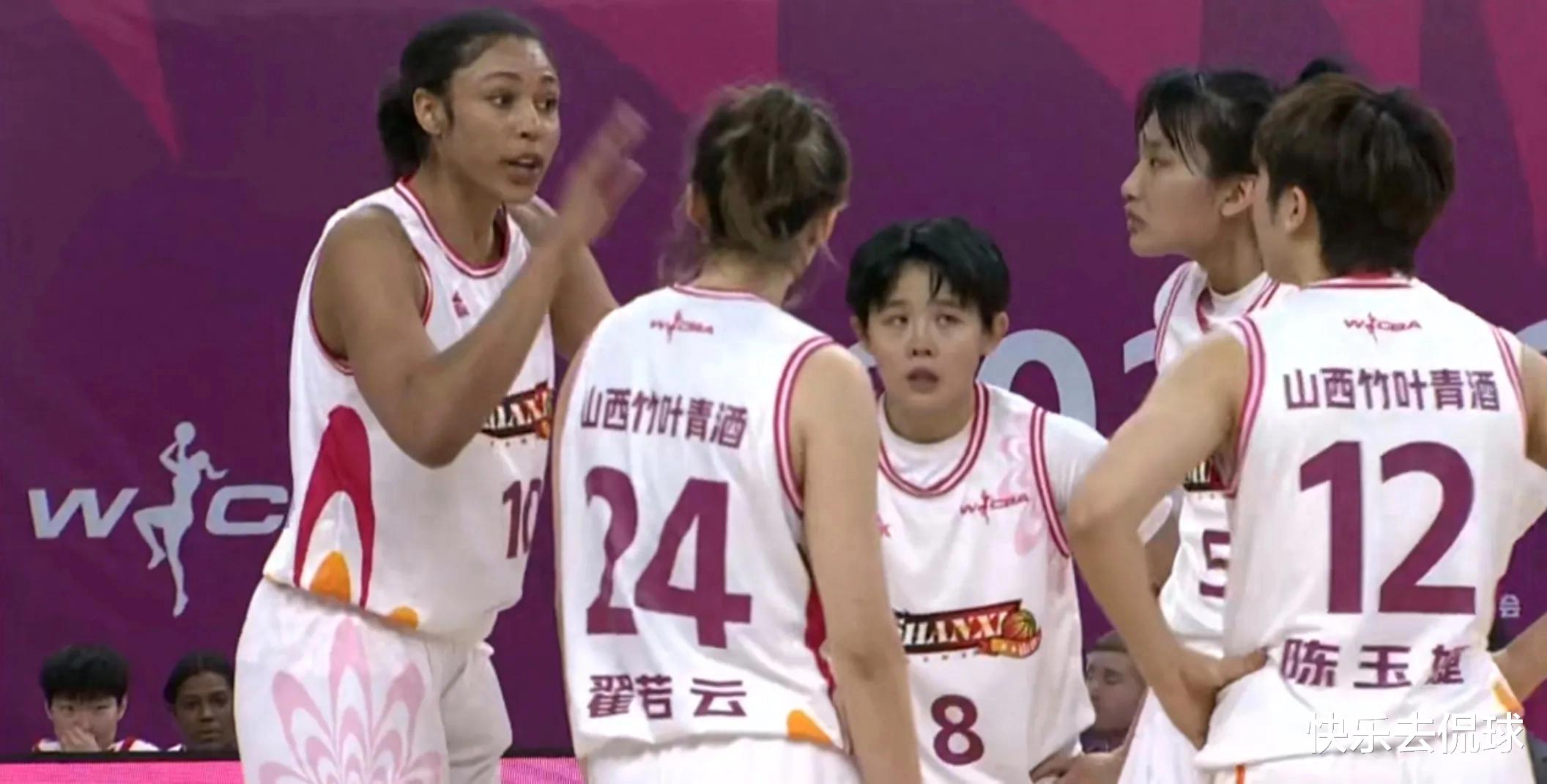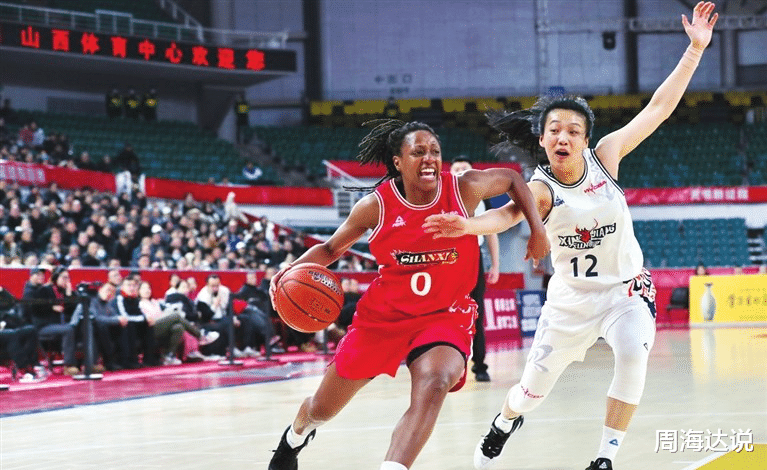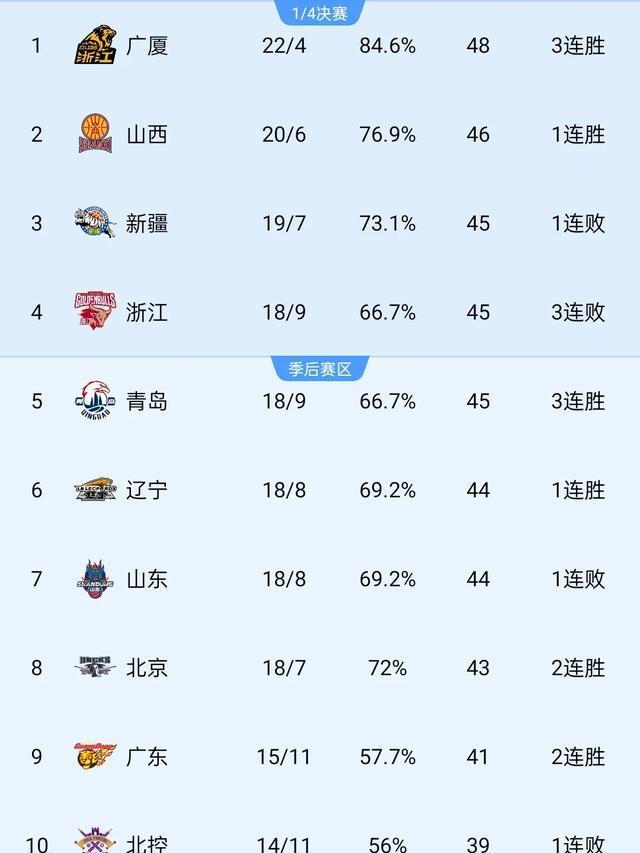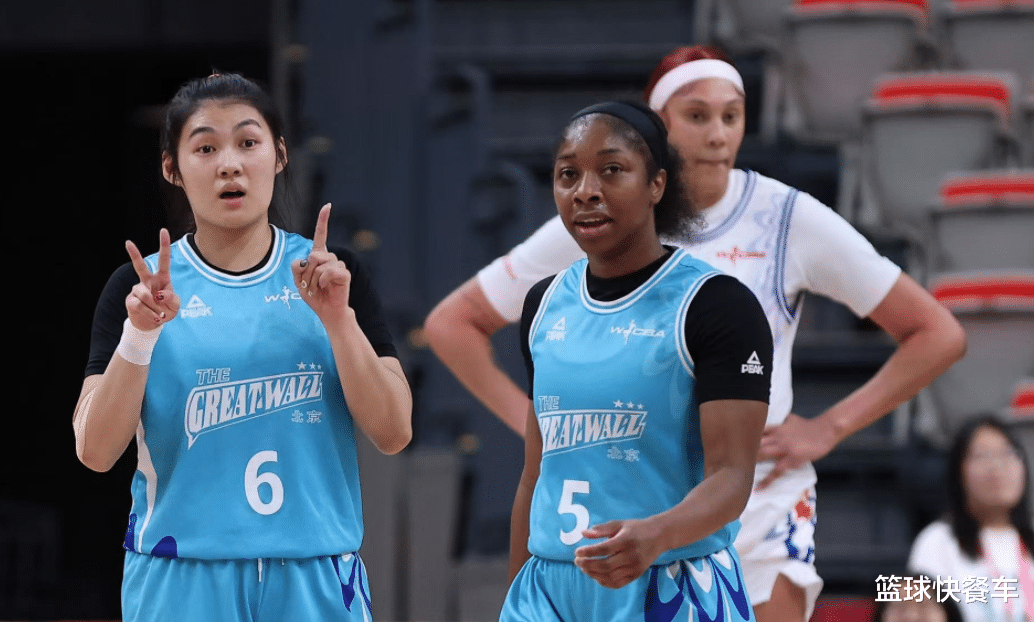The 28th round of the CBA regular season on January 8th saw two exciting matchups, featuring Xinjiang against Nanjing and Liaoning against Sichuan. These games not only showcased the tactical characteristics of different teams but also reflected their current competitive states and developmental stages. In the match between Xinjiang and Nanjing, the disparity in strength was evident from the outset. Due to a strategic withdrawal, Nanjing's main player, Leaf, along with several domestic core players, did not participate, significantly reducing the team's overall strength. In this situation, Nanjing had to rely on its foreign players, Floyd and Harris, who became the primary offensive support. In the first quarter, these two foreign players performed exceptionally well, scoring 24 out of the team's 27 points. However, this over-reliance on individual ability has obvious limitations. Their scores mostly came from individual efforts, lacking teamwork, making such an offensive approach unsustainable and easily targeted by opponents. In contrast, Xinjiang displayed a completely different playing style. They completed 13 assists in the first quarter, showcasing excellent team coordination and chemistry. Xinjiang's offense flowed smoothly, particularly with significant success in inside penetration. The team worked closely together, producing delightful team basketball. As the game progressed, Nanjing's disadvantages became increasingly apparent. With insufficient depth in the lineup and weaker local players, once the foreign players' form fluctuated, the team struggled to maintain stable scoring. Xinjiang, on the other hand, played more freely, maintaining high efficiency with a combination of inside and outside play, ultimately winning by a large margin of 124-99. In the other game, Liaoning faced…
Translation of the article title into English: Top 10 Domestic Players in CBA Round 26: Qi Lin Ranks 1st, Zhou Peng 2nd, Wang Rui Ze 3rd, and Zhou Qi 7th
Translation of the article content into English: In the 26th round of the CBA, Xinjiang team really had a tough time. Zhao Rui and Abudu Salamu were not on the court, so Qi Lin carried the team throughout the game. They finally managed to win the game, which was quite suspenseful. Xinjiang team started the game with difficulty. In the first quarter, their three-point shooting wasn't great. Qi Lin couldn't find his rhythm on the court, and his teammates were also out of form. As a result, they were beaten by Sichuan team with an 11-point gap. In the second quarter, Qi Lin suddenly found his touch, scoring several consecutive offensive rounds and leading the team to a counterattack climax. He scored 12 points in a single quarter, bringing the score back. In the third quarter, Sichuan team was completely restricted by Xinjiang's defense. Their three-point shooting was only 1 out of 10, which was quite ugly. At this moment, Qi Lin played particularly smartly on the court, leading his teammates to widen the point difference to 12 points. In the final quarter, Sichuan team suddenly launched a counterattack, making 6 out of 14 three-point shots to catch up with the score. Qi Lin stood out again at this time, scoring 10 points with 4 out of 7 shots, helping the team stabilize the situation. Qi Lin really showed his dominance in this game, with a terrifying stat line of 30 points and 11 rebounds. This performance was especially crucial when two main players were absent from the team. Xinjiang…
CBA Rankings Undergo Major Shift Overnight! Xinjiang Rises by 4 Places, Liaoning and Guangdong Rank 8th and 9th, Dark Horse Drops to 3rd Place
The CBA rankings have undergone a major shift overnight! Xinjiang has risen by four places, Liaoning and Guangdong are ranked 8th and 9th, while the dark horse has dropped to 3rd place. Xinjiang's match was a real eye-opener! On January 4th, they faced Sichuan in a classic case of being chased down. They started poorly, with the first quarter seeing them being dominated by their opponents, almost stumbling badly. However, the Xinjiang players remained calm and gradually found their rhythm. In particular, Qi Lin really carried the entire team! He scored 16 points in the first half, instantly turning the situation around and leaving Sichuan with no fight left. He finished the game with 30 points, 11 rebounds, and 3 assists, becoming the backbone of the team! It should be noted that Sichuan also played well in this game, with Li Weihao contributing the highest score of 22 points for the team. Unfortunately, despite their strong counterattack from Xinjiang, Sichuan couldn't hold onto their advantage and ultimately lost the game 94-100. This victory was crucial for Xinjiang, propelling them from sixth place all the way up to second! They've gone from being a mid-table team to joining the top ranks, with their record improving from 19 wins and 6 losses. Honestly, there are many commendable aspects behind Xinjiang's impressive win in this game. As for Sichuan, although they lost, Li Weihao's performance was beyond reproach. As always, there's room for improvement, and it's worth encouraging. Speaking of Shanxi, this team is truly the "dark horse" of the year; no one…
Throwing 51 million! Two 4-foreign aid teams appear in WCBA, Sichuan women's basketball team wants to defend the title only one way
The WCBA season is already halfway through, and Sichuan Women's Basketball Team still holds the position of "absolute hegemony". Many teams are not willing to be left behind. They have timely identified problems during the games and have started to strengthen their teams by recruiting a large number of new foreign players. Among them, Xinjiang Women's Basketball Team, Henan Women's Basketball Team, and Shanxi Women's Basketball Team have acted very quickly, and there is even hope that they can challenge the dominant positions of Sichuan and Inner Mongolia. According to a well-known sports blogger, Henan Women's Basketball Team, ranked 16th in the WCBA, has invested 51 million yuan to build the team! This summer, Henan Women's Basketball Team hired Park Myung-ju, an assistant coach of the Chinese Women's Basketball Team, as the head coach of Henan Women's Basketball Team. After that, they signed a large number of excellent domestic players as well as three powerful foreign players: Akindu, McDaniel, and Odyssey Sims. Later, they also signed the fourth foreign player Emma Gunn, becoming the first team this season to sign four foreign players. In addition to Henan Women's Basketball Team, Shanxi Women's Basketball Team also signed a powerful foreign player, Mercedes Russell, who once played for the WNBA Seattle Storm. After Liu Yutong left the WCBA, Shanxi Team had a huge vacancy in the frontcourt. The arrival of Mercedes Russell greatly strengthened Shanxi Team's frontcourt, making Shanxi Women's Basketball Team the second team this season to sign four foreign players. Shanxi Team has performed outstandingly this season with a record…
Throwing 51 Million! Two 4-Foreign Teams Appear in WCBA! Who Still Dares to Say Sichuan Women's Basketball Championship is Steady
As the WCBA season approaches the two-thirds mark, more and more teams are discovering deficiencies within their squads or finding that certain foreign players do not fit with their current team dynamics. Consequently, many teams have been busy reinforcing their rosters recently. Among these are the Xinjiang women's basketball team, Xiamen women's basketball team, Henan women's basketball team, and Shanxi women's basketball team, all of which have been recruiting new foreign players. Both Henan and Shanxi previously had three foreign players, but for the sake of performance, these two teams have really gone all out. According to a well-known blogger, Henan women's basketball team has invested 51 million RMB this year to build the team. This summer, Henan women's basketball team first signed Chinese women's basketball assistant coach Park Myung-ju as the head coach of Henan women's basketball team, and then conducted a series of signings of a large number of players, including domestic players such as Sun Li and Peng Huaqian, as well as signing three foreign players: Asinde, McDaniel, and Odyssey Sims. However, the latest news is that Henan women's basketball team has cancelled the registration qualification of Odyssey Sims and changed to sign Emma Gunn as the third foreign player, making Henan women's basketball team the first team this season to sign four foreign players. However, the latest news yesterday was that Shanxi women's basketball team also signed the fourth foreign player, she is Mercedes Russell from the United States. Mercedes Russell has played for the Seattle Storm for the past seven seasons and was a member…
New National Women's Basketball Team Members Emerge, It All Depends on Coach Zheng Wei's Tactics
The women's basketball league has been going on, with the Sichuan team leading the standings with a winning streak, and Han Xu averaging more than 17 points is really impressive. These girls are fighting fiercely on the court, making people shout excitedly. The national team selection is imminent, and it's hard to say who will be selected. Sichuan Shudao Yuanda women's basketball team has now achieved an 18-game winning streak. This team is so fierce that Han Xu's domineering performance in the paint can be seen in every game. Her average of 17.6 points is not for nothing, with a high shooting percentage, and she always stands out to score at critical moments. Gao Song is playing well in the Sichuan team, with an average of 15.7 points indicating that she is in top form. Although she didn't make it to the Paris Olympics, this kind of performance is absolutely worth reconsidering for the national team. The Sichuan team's achievements today are largely due to the tactical arrangements of the coaching staff, who have clearly paired Han Xu and Gao Song, making the offensive end colorful and the defense quite in place. Although other teams have a considerable points difference, the competition is still fierce, with each team wanting to make a playoff push, and every game is exciting. Li Yueru's performance at the Paris Olympics was evident to everyone, and she also performed well in the Turkish Super League. Now, no one can shake her position as the domestic center. Xu Chenyan averages 14.9 points in the Jiangsu team,…
CBA Standings: Qingdao Wins Third Consecutive Game to Rank Fifth, Fujian Defeats Sichuan in Overtime, Guangzhou Suffers 11th Straight Loss
In the 27th round of the CBA regular season, Qingdao defeated Guangzhou 103-90, securing their third consecutive victory and ranking fifth with a record of 18 wins and 9 losses, having played one more game than some teams. Guangzhou suffered their 11th consecutive loss, with a total record of 6 wins and 21 losses, placing them 17th. Sichuan lost to Fujian 127-132 after overtime, with both teams deciding the outcome through an extra period. Despite the combined 86 points from Sichuan's two foreign players, they still lost the game. Sichuan has now lost four games in a row, with a total record of 7 wins and 20 losses, ranking tenth. Fujian secured their third win of the season, placing them 20th. Qingdao's injury situation has been greatly alleviated. In the past two games, they have defeated Sichuan and Shanxi, maintaining their position in the top eight. Yang Hanshen, Duan Angjun, and Wang Ruize started the game, with foreign players Miqi and Weisipang also in the starting lineup. Although Smith was on the roster, his chances of playing were slim, as he did not participate in the previous game against Shanxi. Guangzhou had already lost ten consecutive games prior to this match, with three foreign players in action. However, their domestic players' abilities are limited, making it difficult for them to win without Guo Ailun. Guangzhou has only managed six victories so far. The first quarter ended with both teams tied at 26 points each. Qingdao led the second quarter 27-21, taking a 53-47 lead at halftime. The two foreign players…
WCBA Latest Standings: Fujian's First Victory, Sichuan's Championship Unquestioned, Predicting the Runner-up to Be This Team
The 19th round of the A group regular season of the 2024-2025 WCBA league has seen 4 games played and 2 yet to be contested. Shanxi defeated Inner Mongolia, while Dongguan lost away to Beijing. Fujian pulled off a surprise victory against Zhejiang Chouzhou, securing their first win of the season. The latest standings in the WCBA see Sichuan as clear favorites for the championship, with predictions for the runner-up being this team! Shanxi Zhuye Qing Jiu faced off against Inner Mongolia Nongxin in a strong matchup. At the end of the first quarter, Shanxi trailed by 6 points at 19-25. However, in the second quarter, Shanxi turned the tables with a score of 28-12, setting the stage for victory. Ultimately, Shanxi triumphed over Inner Mongolia with a final score of 92-84. Shanxi's double foreign aid performed exceptionally well, with Kelsey scoring 32 points, 6 rebounds, 5 assists, and 1 steal, and Olivier contributing 23 points, 3 rebounds, 4 assists, and 3 steals. LKX added 12 points, 2 rebounds, 10 assists, and 2 steals. On Inner Mongolia's side, Karani had 23 points, 10 rebounds, 4 assists, and 1 steal, Li Yuan scored 13 points, 1 rebound, and 8 assists, Sun Mengran contributed 8 points, 3 rebounds, and 8 assists, Zhang Ru had 14 points, 4 rebounds, 2 assists, and 2 steals, and Natisha chipped in with 22 points, 6 rebounds, and 4 assists. Fujian Jinjiang Zhongteng achieved a surprising 100-96 victory over the formidable Zhejiang Chouzhou Bank, securing their first win of the season. For Fujian, foreign aid Tera shone…
20-point comeback victory! The women's basketball 5-time champion defeats the opponent with a crushing blow: After scoring only 7 points in a quarter, they find themselves in a desperate situation?
In the 18th round of the WCBA Women's Basketball League regular season, Beijing Women's Basketball hosted Shanghai Women's Basketball at home. Beijing started poorly and was hit by a 25-7 attack wave, falling behind Shanghai by as much as 20 points at one point. However, in the following three quarters, Beijing did not give up and launched a comprehensive counterattack. After successive counterattack waves, Beijing finally staged a great comeback and completed a 20-point comeback feat at home. The team ultimately defeated Shanghai 81-77 with a narrow 4-point advantage, creating the largest point difference comeback of the WCBA Women's Basketball season. Both Beijing and Shanghai are considered traditional strong teams in the WCBA league. Although in recent seasons, the WCBA women's basketball has been dominated by two super-strong teams, Sichuan and Inner Mongolia. However, Shanghai and Beijing have had moderate records this season, with mid-level strength. Shanghai currently has 11 wins and 7 losses, ranking fourth in the standings, while Beijing has 8 wins and 10 losses, ranking ninth in the standings. Although there is a significant gap in the rankings between the two teams, there are only 3 wins and losses, and in terms of strength, there is not as big a difference as the rankings suggest. In this game, Beijing was playing at home, but after the first quarter began, Beijing's state was very poor, with no feel for the offense. They scored only 7 points in the first quarter, while the visiting Shanghai team was hot, scoring 25 points in a single quarter and making a dream…
Congratulations to Sichuan Women's Basketball Team for Achieving a 17-Game Winning Streak! 3 Players Scored Perfectly, 2 Performed Excellently, and the Latest Standings Are Out.
Sichuan Women's Basketball Team is writing their own legend with a remarkable presence. Their 17 consecutive victories are not just a numerical accumulation but a declaration of dominance. On the evening of December 30th, Sichuan Women's Basketball Team defeated Fujian Women's Basketball Team at home with an absolute advantage of 106:66. This result was both expected and impressive, making one wonder where the ceiling of this team lies. More importantly, what this game reflects goes beyond the mere significance of victory or defeat. The reason why Sichuan Women's Basketball Team can dominate on the court is not only because they have top players like Li Meng and Han Xu, but also due to the depth of the team and the chemistry among the players. In this game, Li Meng scored 8 points in just 9 minutes, while Han Xu contributed 7 points in only 7 minutes. This "short time high efficiency" performance may seem low-key at first glance, but upon closer examination, it is the best embodiment of Sichuan Women's Basketball Team's allocation of resources and tactical execution. The two core players chose to leave more opportunities for their teammates, and behind this "give and take" lies the team's absolute confidence in victory. The most impressive player is undoubtedly Li Shuangfei. With 21 points, 6 rebounds, and 2 assists, her 80% three-point shooting rate is astonishing. Her performance can be described as "perfect," but what is more thought-provoking is that her outburst is not accidental. Li Shuangfei has repeatedly shown her calmness and big heart in critical moments this season,…









